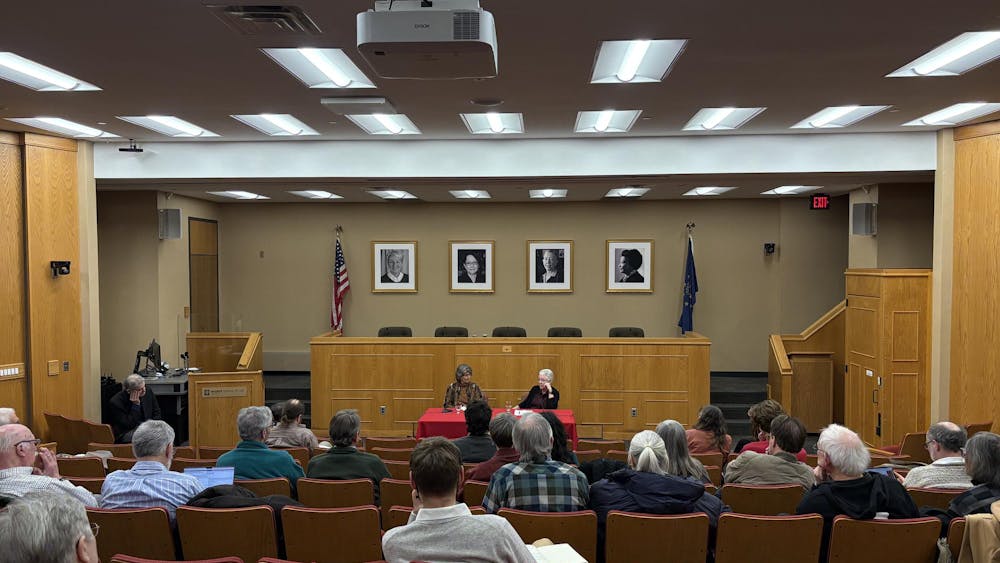NEWARK, Del. – Downloading songs off of media file-sharing programs such as BitTorrent or Limewire is free and seemingly without risk. But now it can cost students a federal lawsuit and thousands of dollars in damages. \nThe Recording Industry Association of America sent 23 pre-litigation settlement letters to the University of Delaware this past July as part of its campaign to stop illegal file-trafficking on college campuses. \nRIAA spokeswoman Cara Duckworth said each letter informs the university of an upcoming copyright infringement lawsuit against one of its students or personnel. The RIAA requests that the university forward the letters to the appropriate network users so they can decide whether or not to settle out of court. \nThe RIAA will file a federal lawsuit if it does not hear from a violator within 20 days of notification, Duckworth said. \nThe recording industry has lost approximately $3 billion over the past six years due to piracy, she said. \n“Our job first and foremost is to protect the rights of new music artists,” Duckworth said. “We’ve seen artists who get dropped from labels because these labels can’t support them and then fans are never able to discover them.” \nThe RIAA’s new anti-piracy initiative began in February when it sent 400 letters to 13 universities nationwide, she said. Since then, the RIAA has been sending out 400 to 500 letters per month. \nPreviously, the RIAA had limited its search to the most egregious downloaders, Duckworth said. Now there is no minimum number of illegal files required for a downloader to get caught – any illegal downloader is at risk of receiving a RIAA letter. \nThe recording industry acknowledges that piracy is no small problem. \n“College students are having their first taste of independence and when they see something that’s free, they want to take advantage of it,” she said. “They do not often understand the damage they may be causing. \n“We understand there’s no silver bullet to solving piracy. Our goal is to raise awareness and contain the problem.” \nU. Delaware Judicial Affairs coordinator Michael Fernbacher stated in an e-mail message that the university has been actively informing students of the importance of following all copyright laws, mainly through the University’s Code of the Web and No \nExcuses campaigns. \n“It is important to note that the concern is not just illegal downloading, but illegal file sharing of copyrighted materials,” Fernbacher said. “Regardless of where a student originally got a copyrighted work, it is against the law, and against policy, to redistribute that work to others.” \nKarl D. Hassler, associate director of Delaware’s IT Network & Systems Services, stated in an e-mail message that many students know illegal file-sharing is wrong, but they do it anyway. \n“By itself, I don’t think that litigation is going to make the problem entirely go away,” Hassler said. “It’s too complex for that.” \nHe said the music industry has been slow to embrace money-making opportunities that work with students’ lifestyles and technology. \n“They need to get together and keep moving it forward, and not stay stuck in the mindset that the only way to distribute music profitably is via a 15-song CD for $15,” he said.
Delaware students get RIAA letters about illegal downloads
Get stories like this in your inbox
Subscribe





